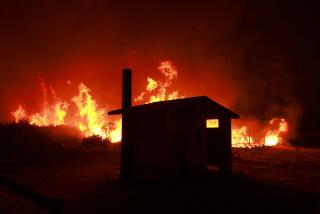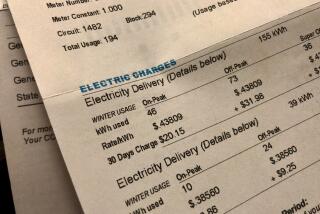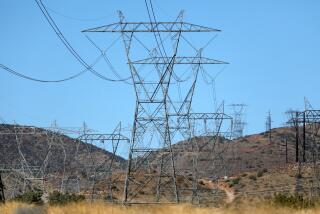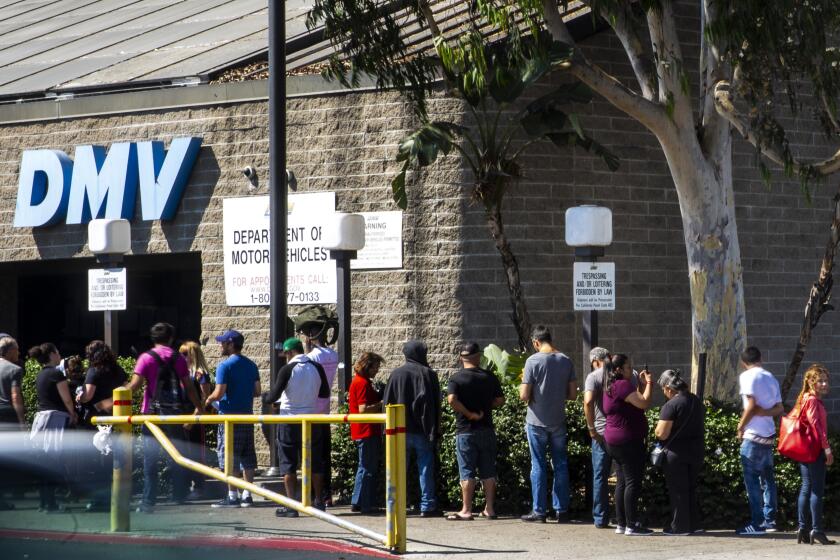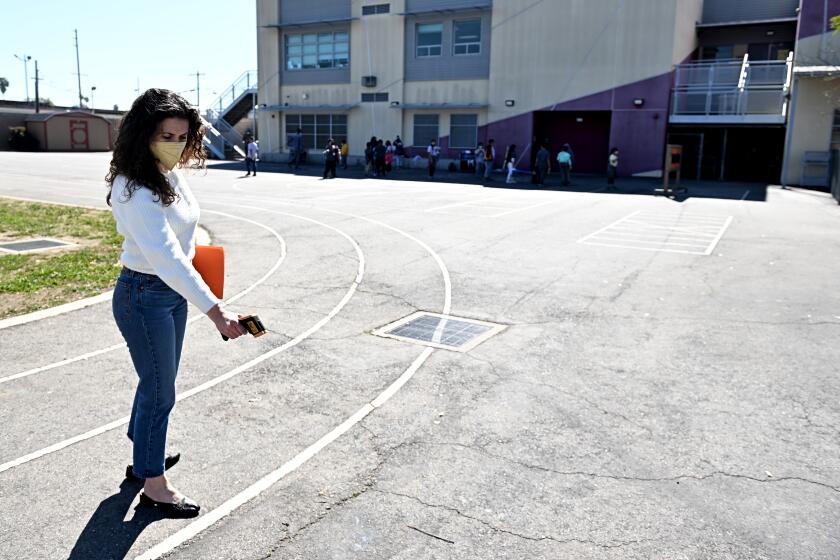Utility keeps fighting to pass on costs of massive 2007 fires in San Diego County to ratepayers
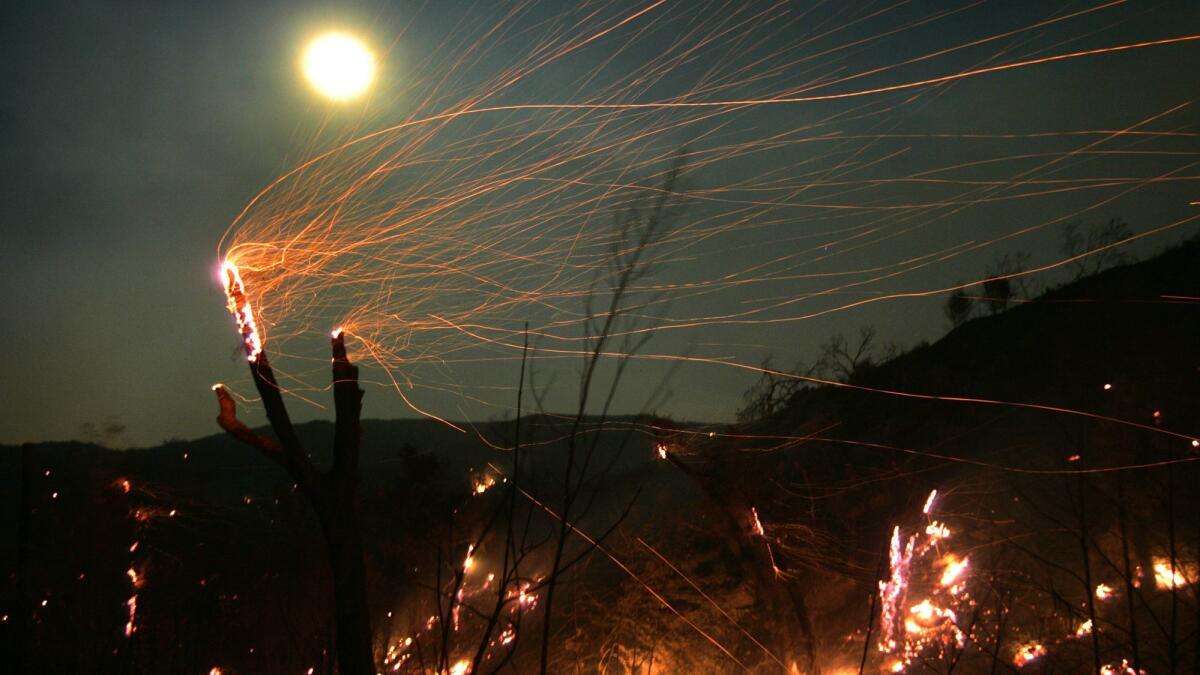
San Diego Gas & Electric Co. is taking its fight to have ratepayers shoulder $379 million in costs related to 2007’s deadly wildfires to the California Supreme Court.
Pacific Gas & Electric Co. and Southern California Edison are closely watching the SDG&E case, especially as lawsuits pile up in the aftermath of the Camp fire in Butte County that has killed at least 88 and the Woolsey fire in Los Angeles and Ventura counties that destroyed about 1,500 structures.
Writing for California’s 4th District Court of Appeal in San Diego this month, Associate Justice Patricia D. Benke denied SDG&E a hearing that would have had the appeals court review a decision by the California Public Utilities Commission that in a 5-0 vote rejected the utility’s request to pass along the $379 million through rates.
In a 48-page filing before the state’s high court, SDG&E attorneys not only argued that the appeals court denial and the commission ruling were incorrect but said Benke should not have taken part in the case because she and her husband sued SDG&E over a house lost in the Guejito fire — one of the blazes that ripped through San Diego County in October 2007.
Benke’s “failure to recuse was prejudicially unfair and should be reviewed,” SDG&E’s attorneys wrote.
Benke did not respond to an email from the San Diego Union-Tribune sent through the Judicial Council of California’s public affairs office, but a review of court data showed that Donald and Patricia Benke were among some 50 plaintiffs who filed suit in October 2009 against SDG&E, Sempra Energy (the utility’s parent company), Cox Enterprises and Coxcom Inc.
According to Benke’s brother, J.R. Jacobs, the destroyed home in Rancho Bernardo was originally owned by the siblings’ father, Joseph Jacobs. After his death, the house was handed to J.R. Jacobs and Benke through the family’s trust. Benke never lived in the house.
Cathal Conneely, spokesman for the judicial council, said justices are prohibited from commenting on pending cases or cases expected to be heard soon.
Conneely said that no single justice can rule against a petitioner in a case before the Court of Appeal and that a majority is required to render a decision.
The SDG&E case that Benke delivered was “read and considered” by Justices Benke, Terry B. O’Rourke and William Dato, who came back with a unanimous decision.
“They [SDG&E] should not have attacked the judge,” said Michael Aguirre, an attorney who represented ratepayer advocate Ruth Hendricks in a lawsuit dealing with the 2007 fires. “It’s going to backfire on them because there are two other judges that ruled against them and that’s all that matters…. That’s why we have three-judge panels.”
Aguirre said he will file a response to SDG&E’s petition to the state Supreme Court.
The bulk of SDG&E’s petition, filed Monday, reiterated arguments the utility made before the California Public Utilities Commission, or CPUC. A core issue revolves around the legal doctrine of “inverse condemnation.”
If a public improvement leads to an individual suffering losses, the concept of inverse condemnation allows a government entity or publicly owned utility — such as the Los Angeles Department of Water and Power — to recoup those costs by raising taxes or increasing rates.
But California’s three investor-owned utilities — SDG&E, PG&E and Southern California Edison — do not have the power to raise taxes and must receive approval from the utilities commission to increase rates.
In its decision last year, the commission said inverse condemnation did not apply to SDG&E in the 2007 wildfires. The commission used a “prudent manager” standard in denying the utility’s request to recover $379 million through higher rates paid by its customers.
All five commissioners agreed with an administrative law judge who said SDG&E “did not reasonably manage and operate its facilities” leading up to the Witch, Guejito and Rice fires that killed two people, injured 40 firefighters and forced more than 10,000 to seek shelter at Qualcomm Stadium. The three fires combined to destroy more than 1,300 homes.
SDG&E wanted the utilities commission to have a rehearing but was turned down in July. It then went to the court of appeals only to have Benke and the other justices deny the utility a hearing. Now it will take another bite at the apple by asking the California Supreme Court to take the case.
“California courts have applied inverse condemnation to privately owned public utilities in past [court] decisions on the assumption that the CPUC will permit utilities to spread those costs through rates,” SDG&E spokeswoman Allison Torres said in an email.
“However, since the court of appeals has upheld [the] CPUC’s decision to deny cost recovery, it has created a conflict with past decisions that deserves clarification.”
Nikolewski writes for the San Diego Union-Tribune.
rob.nikolewski@sduniontribune.com
More to Read
Start your day right
Sign up for Essential California for news, features and recommendations from the L.A. Times and beyond in your inbox six days a week.
You may occasionally receive promotional content from the Los Angeles Times.
